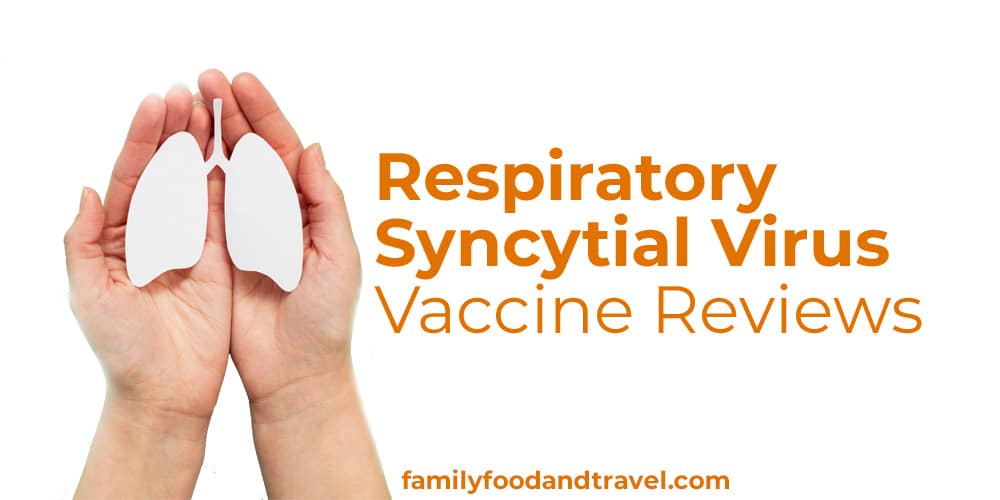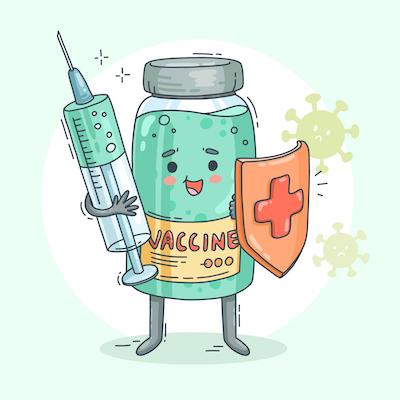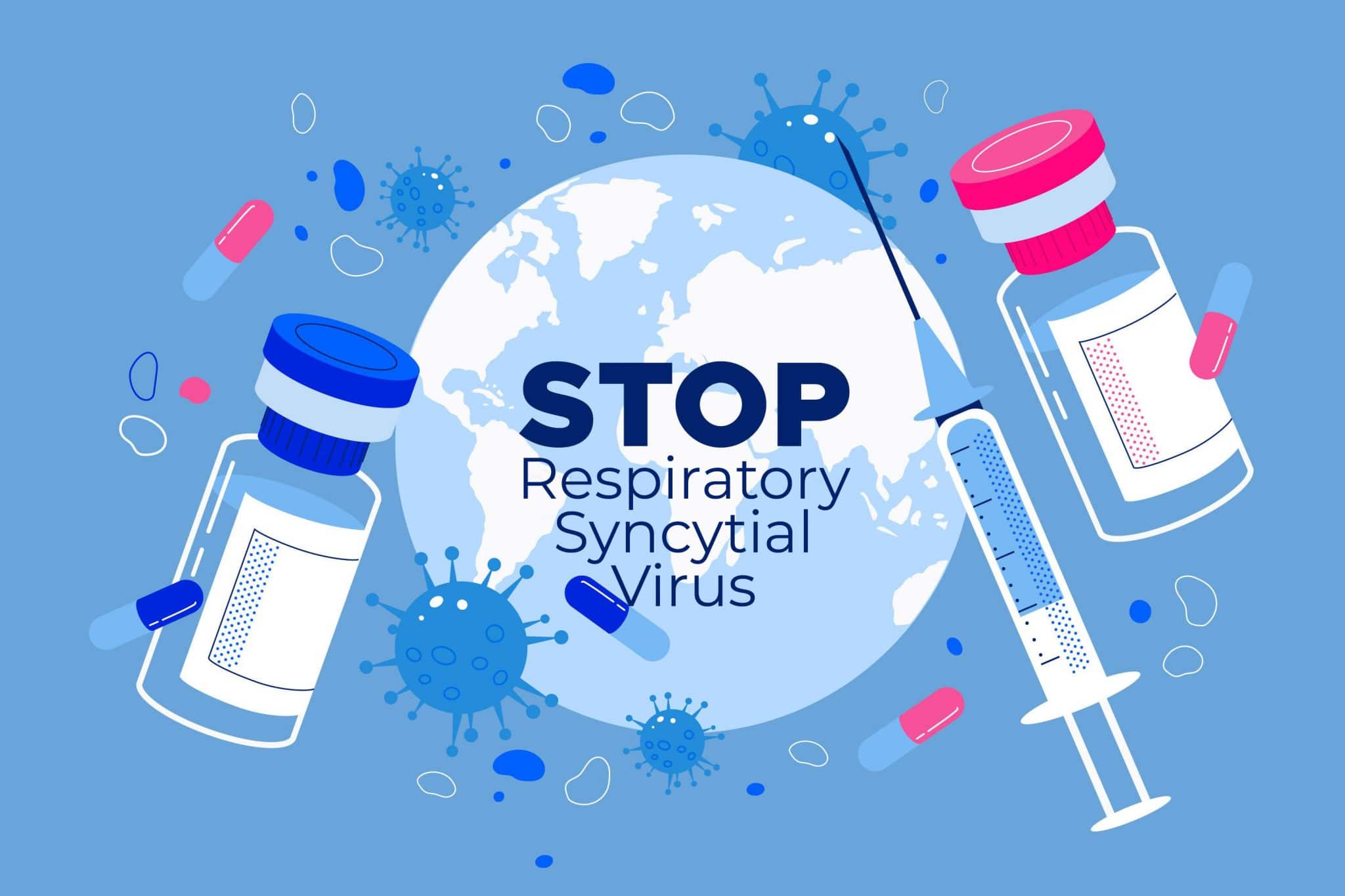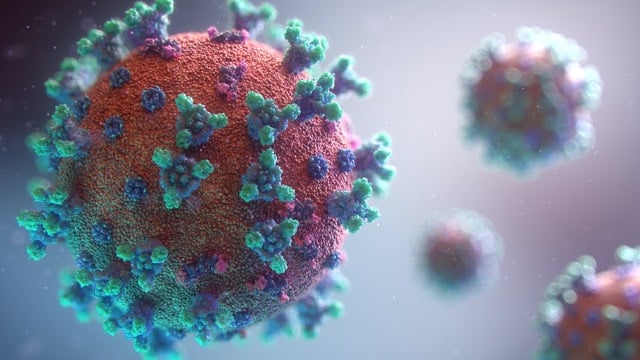Respiratory syncytial virus (RSV) is a seasonal lung infection with a very high rate of contamination. RSV is known to affect people in all age groups but it’s mostly common among children causing hospitalization and morbidity.

In most cases, the symptoms are cold-like and are usually mild. In severe cases, RSV can lead to bronchitis and pneumonia. To avoid and stay far from this virus, practicing general good hygiene, like washing of hands will help put the virus at bay.
What is Respiratory Syncytial Virus?
Respiratory syncytial virus (RSV) is a typical and pervading cause of intense respiratory ailment with no known vaccine available to forestall it yet. The virus is exceptionally infectious and typically influences the lungs and airways. It ordinarily causes gentle, cold-like side effects. Yet, it can cause genuine lung diseases, particularly in babies, more established grown-ups, and individuals with complicated clinical issues.

Every year, it is assessed that over 177,000 grown-ups are hospitalized and 14,000 of them kick the bucket in the United States because of RSV. The infection weight of RSV in kids is likewise overwhelming. All around the world, there are an expected 33 million instances of RSV every year in youngsters under 5 years old, with around 3 million hospitalized and up to roughly 120,000 biting the dust every year from entanglements related to RSV.
How does Respiratory Syncytial Virus work?

The infection can live for a long time on hard surfaces, for example, ledges, rails, and toys. Contact your mouth, nose, or eyes in the wake of contacting a polluted surface and you’re probably going to get the infection.
An infected individual is generally contagious during the first week or so post-infection. Be that as it may, in babies and those with debilitated insusceptibility, the infection might keep on spreading even later indications disappear, for as long as about a month.
Respiratory Syncytial Virus in Children
One of the essential reasons that babies are at more danger from RSV infection than more grown kids or adults is their tiny components of the growing airway. In particular, the normal breadth of a baby’s respiratory bronchiole is not exactly 50% of a grown-up bronchiole; subsequently, the newborn child’s lungs are more inclined to inhibit RSV-initiated cytopathology and irritation.
During RSV disease, sloughing or shedding of the tainted epithelium aggregates in the limited lumens of the bronchiolar aviation routes, bringing about intense obstacles of the distal airways and irritation of the airways. Intense release of inflammatory cells can cause intense hyperreactivity, which will thus incite smooth muscle tissues coating the bronchioles to additionally contract currently little airways, making the airways more helpless to expanded airway opposition that presents as wheeze and croup in seriously infected newborn children.

One more clarification for why babies, particularly premature children, are especially powerless for RSV is their little immunity and the overall absence of RSV-defensive maternal transplacental neutralizer. Maternal immunization could increase transplacental antibody movement and give insusceptibility to these newborn children. In this light, numerous elements, including the little bronchioles of the airways, tight luminal measurement, maintenance of collections of the shed, and contaminated epithelial cells joined with premature immunity are probably going to have an impact in adding to the expanded spread of RSV disease, aggravation, and illness side effects in newborn children.
Entry of RSV and its Host Cell Receptors

In the cytoplasm, the RSV virus begins to replicate simultaneously destroying the host cell. More viral particles are released into the host cell breeding an overall infection. The F protein, asides from enabling the virion to link with the host cell, or also induces the adjacent uninfected cells to fuse with the host cell. Eventually, each of the cell membranes is destroyed and massive Syncitia (multinucleated epithelial cells) are produced.
One thing about RSV is that its RNA can continue to spread without creating complete viral particles. Given the epithelial cell membranes have been destroyed, humoral immune responses are triggered by the virus. Initial RSV infection only triggers a weak antibody response from the body with IgG, IgA, and IgM being produced. This response, however, is too weak to prevent replication of the virus in the upper respiratory tract. Eventually, an upper respiratory tract illness develops while the immune response remains real even with the severity of the disease.
Host Factors
Some of the host factors linked with RSV include
These factors give reasons for high exposure to RSV infection among infants and older populations. In addition, several studies have proven that RSV infections in both animals and humans suppress immune responses. Hence, the body can’t naturally eliminate the virus from the respiratory tract. By age 2, most youngsters will have been infected with respiratory syncytial infection, yet they can get contaminated by RSV at least a couple of times. Youngsters who go to kid care homes or who have kin who go to class are at a higher danger of openness and reinfection. RSV season — when a flare-up happens the most — is a period between fall to the end of spring Individuals at an expanded danger of serious RSV diseases include: Individuals infected with RSV often show signs from around day 4-6 after infection. The symptoms which might be indicative of RSV include: These manifestations ordinarily show up in stages and not at the same time. In newborn children with RSV, the main manifestations might be crabbiness, diminished movement, and breathing troubles. Practically all youngsters will have had an RSV disease by their 2nd birthday. RSV contaminates the upper airway routes as well as the lower airway routes, where it causes tissue irritation and lower airway obstruction. RSV can annihilate enormous quantities of epithelial cells. Viral replication in the epithelial cells triggers intracellular flagging pathways, which instigate the emission of various cytokines, chemokines, and bond particles. Here, infection and allergen-actuated aggravation cross-over. Cytokines and chemokines, like interleukin (IL)- 8 and controlled on enactment, typical T-cell communicated and discharged (RANTES) expansion in airway emissions during viral contaminations and enlist and actuate provocative cells, for example, neutrophils, eosinophils and initiated T-cells that have all been connected to asthma. Subsequently, raised degrees of eosinophil cationic protein and cysteinyl leukotrienes are found in nasal emissions from babies with RSV contamination. The degrees are specially articulated in bronchiolitis. The arrival of cysteinyl leukotrienes into the airways during RSV disease may halfway cause the wheezing seen in bronchiolitis. The system is exceptionally compelling taking into account current opportunities for helpful mediation with anti leukotriene drugs 30. No vaccine exists for RSV at the moment. Be that as it may, this way of life propensities can assist with forestalling the spread of this disease: Most RSV diseases disappear on their own in possibly 14 days. There is no particular treatment for RSV disease, however, scientists are attempting to foster immunizations and antivirals (meds that battle infections). Immunosuppression is an autonomous risk factor for the extreme respiratory syncytial virus(RSV), which can cause huge bleakness and mortality in the immunocompromised host. The danger of mortality goes up as the disease advances from the upper respiratory tract to the lower respiratory tract. Brief distinguishing proof of the hidden infection and ideal commencement of treatment is reasonable. Albeit the ideal treatment for RSV disease in the immunocompromised patient has not been characterized, a mix of sprayed ribavirin with an immunomodulator ought to be thought of. Preventive measures are basic to keep away from the transmission of RSV to the family or emergency clinic ward. Respiratory viral disease has become one of the main sources of grimness and mortality in immunocompromised patients. Among the respiratory infections most frequently involved in patients who are immunocompromised, respiratory syncytial virus (RSV) is the main source of serious contaminations in this populace, with death rates as high as 80%. Depending upon how much the patient is immunocompromised, RSV can cause various reactions. Lymphocyte intervention reactions ordinarily aid RSV viral clearing, yet changing invulnerable guidelines restricts these reactions in immunocompromised patients, expanding the danger of an overstated inflammatory reaction. Even though RSV contamination most normally appears as upper respiratory tract manifestations in kids and grown-ups, its acknowledgment in immunocompromised patients might be challenging. Brief recognizable proof of the hidden microbe and opportune inception of antimicrobial treatment is basic, attributable to the huge mortality related to RSV disease in this populace. RSV disease in an immunocompromised patient can quickly advance from upper respiratory tract infection (URTI) to lower respiratory tract infection (LRTI), and in this way to RSV pneumonia. The movement to LRTI happens in up to half of the patients going through hematopoietic stem cell transplantation (HSCT) or getting chemotherapy. Studies assessing RSV contamination in the immunocompromised host have tracked down a drawn-out length of hospitalization, an increment in moves to the ICU, and a decrease in by and large outcomes. Case reports and studies have counted the weights that RSV disease puts on the immunocompromised host; in any case, there is as yet a lack of data on the dangers explicit to this patient populace and on avoidance and the executive’s strategies. Prevention, they say, is better than cure! The best way to tackle respiratory syncytial virus (RSV) is to contract it at all. With no known cure, RSV in a severe condition can be very dangerous and life-threatening. Therefore, if you or your child contract the disease, visit the nearest hospital to you to get treatment. This treatment will only cure the symptoms and reduce the severity of the disease but won’t cure the virus itself. It regularly causes blockage, hack, fever, sore throat, and gentle migraine – like the manifestations of a typical virus. It can likewise taint grown-ups, albeit the more grown you are, and the more occasions you get RSV, the milder the indications. RSV is exceptionally infectious and is spread through droplets containing the infection when somebody hacks or sniffles. It can likewise live on surfaces, for example, ledges or door handles – so it can without much of a stretch spread when an individual contacts something debased. RSV can spread quickly through schools and childcare centers particularly in pre-winter through late-winter when there are commonly yearly plagues of the infection. The large kicker comes in that this infection, albeit generally irritating and fleeting for solid kids, can truly cause an issue for babies and small kids that were born untimely, have coronary illness, lung sickness, or any sort of resistance issue. In any case, sadly, having a solid vigorous little youngster is not a free pass with regards to RSV – in some cases, these kids foster serious sickness as well. All in all, is there anything we can do to keep this infection under control? Washing hands well and regularly is the way to stop it. Cleaning down normal surfaces with an antiviral wipe is likewise useful. Attempt to clean up after having any contact with somebody who has cold flu manifestations. If older kids get a cold, attempt to get them far from any more young ones – particularly babies – as much as is practical – until their effects pass. What do we do on the off chance that our kid gets an awful cold and we speculate they have RSV? Thankfully, most instances of RSV are gentle and require no particular treatment from specialists. Antibiotics are not utilized because RSV is a viral infection and antibiotics are most suitable for bacteria At home, make your youngster as comfy as you can, and give a lot of liquids. To assist your kid with breathing better; When would it be a good idea for you to stress that your kid might be becoming particularly ill with RSV? Here are some vital markers to search for: Look for guaranteed help if your kid shows any of these signs;
Respiratory Syncytial Virus Spread clinical studies evaluation & results in 2021: Is Respiratory Syncytial Virus Spread safely?
Risk factors
Does Respiratory Syncytial Virus have any risks or side effects?
Symptoms of RSV
Complications
An extreme RSV disease might require an emergency clinic stay so that specialists can screen and treat breathing issues and give intravenous (IV) liquids.
RSV is the most well-known reason for irritation of the lungs (pneumonia) or the lungs’ airflow routes (bronchiolitis) in newborn children. These difficulties can happen when the infection spreads to the lower respiratory tracts. Lung irritation can be somewhat serious in babies, young kids, older grown-ups, immunocompromised people, or individuals with constant heart or lung illness.
Assuming microorganisms enter the space behind the eardrum, you can get a middle ear disease (otitis media). This happens most often in infants and little children
There might be a connection between extreme RSV in youngsters and the shot at having asthma sometime down the road.
If you’ve previously had RSV, you could get infected yet again. In any case, side effects normally aren’t as extreme — ordinarily, it’s as a typical virus. In any case, they can be serious in adults or individuals with persistent heart or lung illness.How good is the effect of Respiratory Syncytial Virus

Lower Airway Obstruction during RSV Infection

Treatment of Respiratory Syncytial Virus
Prevention
Care
Increased Susceptibility to RSV Infection Due to Pharmacological Immunosuppression.

Respiratory Syncytial Virus Review Conclusion – Our experiences and recommendation:

Facts about Respiratory Syncytial Virus
1. Nearly all kids (97% of them in any case) have caught RSV when they are 2 years of age.
2. Forestalling RSV is the same as forestalling a cold
3. Antibiotics are not the answer for treating RSV
4. There are explicit indicators of RSV to search for in your children
5. RSV can be extremely hazardous, particularly to more youthful kids or those with a hidden medical problem